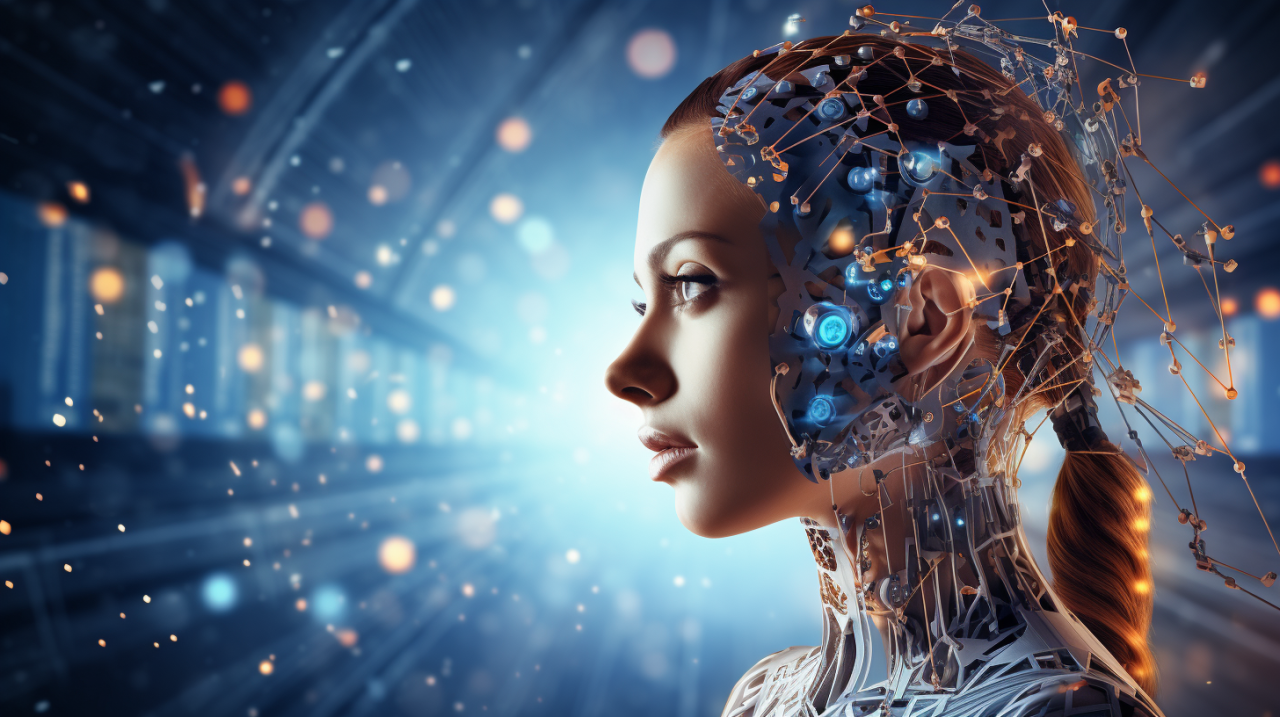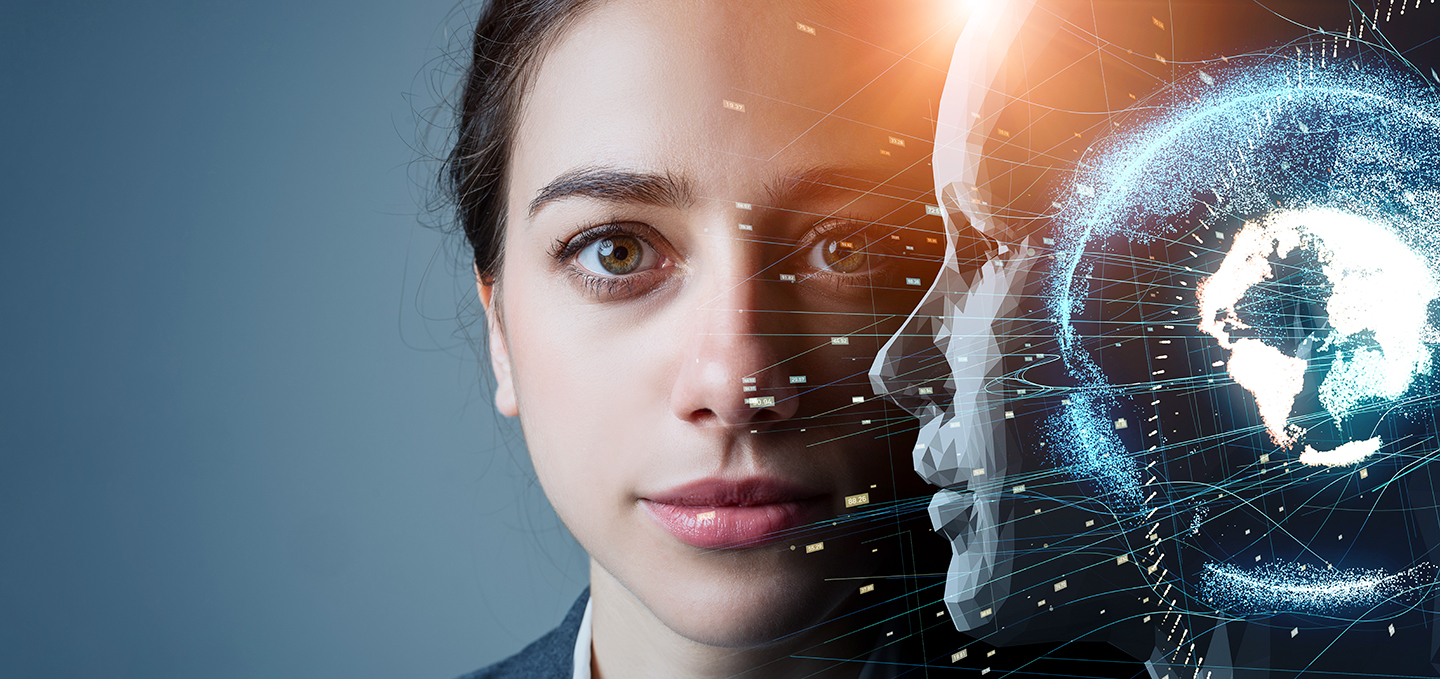Revolutionize Your Approach: Involve with the Premier Generative AI Company
From Information to Creative Thinking: Discovering the Impact of Generative AI in the Area of Artificial Intelligence
Man-made knowledge (AI) has reinvented countless sectors, from medical care to fund, by leveraging data-driven formulas to discover useful insights. Nevertheless, the possibility of AI goes much beyond simple information analysis. With the introduction of generative AI, a brand-new age is arising, one that discovers the intersection of data and creativity. This interesting advancement holds extensive effects for the field of expert system, as it guarantees to transform not only exactly how we understand and utilize information, however also just how we come close to the creative procedure. By using the power of generative AI, we can open the capacity for equipments to produce original and creative content. In this conversation, we will dive into the impact of generative AI in the world of synthetic knowledge, analyzing its potential to change innovative sectors, help with human-computer collaboration, and increase important honest considerations. Join us as we check out the fascinating trip from information to imagination, and uncover the profound influence generative AI could carry the future of expert system.
The Surge of Generative AI
Generative AI has become an innovative area in fabricated intelligence, reinventing the means machines produce brand-new web content and interact with the world. In the last few years, there has actually been a significant increase in the appeal and application of generative AI strategies. These techniques allow equipments to autonomously create new and special material, such as photos, music, and text, without specific human input.
Among the vital factors adding to the rise of generative AI is the accessibility of huge and diverse datasets. With the development of the internet and the proliferation of digital web content, vast amounts of data are now obtainable to AI systems. This wealth of information provides the required basic material for training generative AI versions, permitting them to find out and mimic human creative thinking.

Furthermore, the boosted computational power and the accessibility of specialized equipment, such as graphical handling units (GPUs), have actually played an important function in the surge of generative AI. These advancements have empowered AI systems to process and analyze substantial amounts of information, allowing them to produce web content promptly and efficiently.
Changing Creative Industries
The expanding capabilities of generative AI, sustained by improvements in deep understanding algorithms and computational power, have actually led to a transformative influence on imaginative markets. This innovation has reinvented the means imaginative professionals function, opening up new possibilities and pushing the boundaries of human imagination.
Generative AI has allowed artists to explore brand-new worlds of imagination by supplying them devices that can produce unique and one-of-a-kind material. For instance, in the field of visual arts, generative AI formulas can examine existing art work and produce new pieces based upon the design and attributes of the input. This not only conserves time however also increases the imaginative possibilities, enabling artists to experiment with different designs and methods.
In the music industry, generative AI has additionally had a substantial impact. It can make up brand-new melodies and consistencies, creating music that was formerly unthinkable. This technology can even imitate the design of renowned musicians, making it possible for the creation of brand-new tracks that seem like they were made up by musicians that have actually lengthy died.
Furthermore, generative AI has actually discovered applications in various other imaginative fields, such as style and design. It can produce brand-new clothes designs, indoor designs, and architectural concepts, giving developers with a wide range of inspiration and increasing the imaginative procedure.
However, while generative AI uses exciting opportunities, it additionally elevates ethical concerns and obstacles traditional concepts of authorship and creative thinking. As this modern technology continues to establish, it is critical to strike a balance between human imagination and the capacities of AI, ensuring that the final outcome shows the intents and imaginative vision of the human creator.
Enhancing Human-Computer Collaboration
Partnership between human beings and computer systems is being enhanced More about the author through the integration of generative AI, causing a brand-new period of imaginative opportunities. With the advancements in synthetic intelligence, people are now able to function very closely with computer system systems to attain end results that were formerly unbelievable. Generative AI, a part of AI that concentrates on developing brand-new web content, has actually changed the means human beings and computer systems work together.
Generative AI allows computer systems to produce material, such as photos, songs, and text, based on examples and patterns supplied by humans. This collaboration allows people to utilize the computational power of AI systems to boost their creative procedures. As an example, musicians can use generative AI to generate new visual ideas or discover various styles, while musicians can produce one-of-a-kind structures by teaming up with AI-generated melodies.
In addition, generative AI can help in tasks that need large quantities of data handling, such as data evaluation and pattern recognition - generative ai company. By incorporating AI systems into the cooperation process, human beings can take advantage of the computational capabilities of AI to examine complex datasets and remove meaningful understandings
However, to make certain successful cooperation between human beings and computers, it is essential to establish a clear understanding of the functions and responsibilities of each event. Humans need to provide the needed guidance and expertise, while AI systems can help in the creative process by creating choices and opportunities. This collaboration between people and computer systems opens up new opportunities for technology and creativity, pushing the borders of what is feasible in various fields.
Moral Effects of Generative AI
As we explore the moral implications of generative AI, it emerges that this cutting-edge technology raises considerable worries and factors to consider. Generative AI systems have the capacity to create, generate, and simulate human-like material, such as photos, video clips, and message. While this has actually opened brand-new possibilities and opportunities in various fields, it has read the full info here also sparked discussions about the potential misuse and ethical problems connected with such innovation.
One of the primary issues is the capacity for deepfakes, which are controlled or produced media that can deceive and deceive people. With generative AI, it becomes simpler for malicious actors to develop persuading deepfakes, bring about false information, reputational damages, and also political adjustment. This poses a threat to the trust we place in electronic media and can have far-ranging effects for societies and individuals.
One more honest factor to consider focuses on the concern of intellectual residential property. Generative AI systems can develop initial web content that may infringe upon copyright regulations or increase concerns about possession and acknowledgment. Identifying the rights and duties in such situations becomes an intricate task, especially when AI-generated web content is identical from human-created content.
Additionally, generative AI has the potential to bolster and magnify existing biases and discrimination existing in the training data. If the information used to educate these systems includes prejudiced information, the created content might reflect and bolster those biases, bring about unjust or biased results.
In enhancement to these issues, there is also a demand to consider the effect of generative AI on approval, protection, and privacy. AI systems can collect, examine, and make use of vast amounts of personal information, leading to potential breaches of personal privacy and worries concerning data security. The approval of people whose information is made use of to educate and boost these systems have to be carefully addressed to ensure ethical practices.

Future Prospects and Obstacles
The possible applications of generative AI are vast and varied. Additionally, why not look here generative AI has the prospective to improve human-computer communication by producing extra receptive and smart digital assistants and chatbots.

One more challenge is the requirement for even more advanced formulas and computational power to boost the high quality and performance of generative AI systems. The present constraints in training time and computational resources impede the prevalent adoption of generative AI in real-world applications.
Final Thought
Finally, the increase of generative AI has actually significantly affected the field of synthetic knowledge. It has actually transformed creative markets by making it possible for the generation of cutting-edge and novel material. In addition, generative AI has boosted human-computer partnership, enabling more effective and effective problem-solving. Nonetheless, ethical ramifications bordering generative AI must be very carefully taken into consideration and addressed. Looking ahead, future potential customers and difficulties hinge on further exploring the potential of generative AI and discovering an equilibrium in between creativity and honest factors to consider.
Generative AI has actually arised as a groundbreaking field in artificial intelligence, revolutionizing the way equipments produce new web content and engage with the world. generative ai company.Generative AI has actually made it possible for artists to explore brand-new realms of creative thinking by using them tools that can create unique and special web content. Generative AI, a subset of AI that focuses on developing brand-new material, has revolutionized the means human beings and computer systems work together
Generative AI systems have the ability to develop, produce, and imitate human-like content, such as photos, videos, and message. Generative AI systems can develop original web content that may infringe upon copyright laws or elevate concerns about possession and attribution.